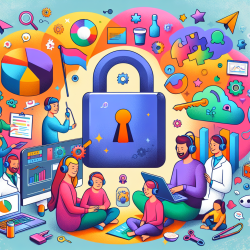As educational psychologists, we are continually striving to enhance the effectiveness of Individualized Education Program (IEP) planning and meetings. With the increasing demands and complexities of special education, integrating online therapy services has emerged as a game-changer in our field. This blog explores how online therapy can significantly improve IEP planning and execution, ensuring better outcomes for our students.
The Challenges of Traditional IEP Meetings
IEP meetings are essential for developing tailored educational plans for students with special needs. However, these meetings often face several challenges:
- Scheduling conflicts among team members
- Limited availability of specialized therapists
- Geographical barriers that prevent all stakeholders from attending
These obstacles can lead to delays and inefficiencies in developing and implementing effective IEPs.
Online Therapy: A Revolutionary Approach
Online therapy, including speech therapy telepractice, offers a viable solution to these challenges. Here’s how:
- Flexibility: Online therapy allows for more flexible scheduling, accommodating the busy calendars of all IEP team members.
- Access to Specialists: Schools can tap into a broader pool of specialized therapists, ensuring that students receive the specific support they need.
- Geographical Inclusivity: Online platforms eliminate geographical barriers, enabling participation from all relevant stakeholders, including parents who may not be able to attend in person.
Implementing Online Therapy in IEP Planning
Integrating online therapy into IEP planning and meetings involves several steps:
- Assessment: Determine the specific needs of the student and identify which services can be effectively delivered online.
- Selection of Platform: Choose a reliable online therapy platform that ensures privacy and compliance with legal standards.
- Training: Provide training for all team members on how to use the online therapy platform effectively.
- Regular Review: Continuously monitor and review the effectiveness of the online therapy services, making adjustments as necessary.
Conclusion
Incorporating online therapy into IEP planning and meetings can address many of the challenges faced by traditional approaches. By leveraging the flexibility, access to specialists, and geographical inclusivity of online platforms, we can enhance the quality and effectiveness of IEPs, ultimately leading to better educational outcomes for our students.
For more information on how TinyEYE can support your school with online therapy services, visit our website or contact us directly.










